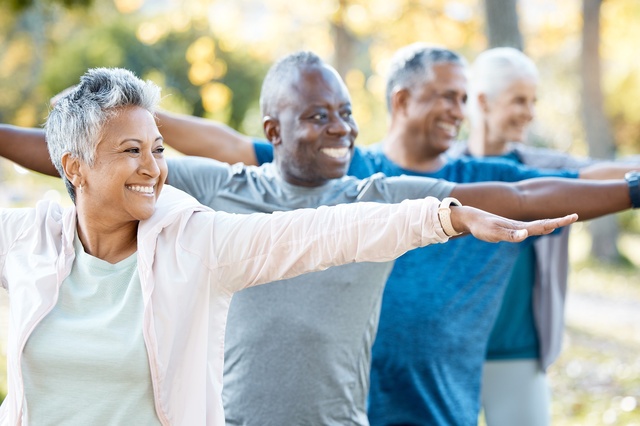
Conversation Tips for People with Social Anxiety
Social anxiety can make everyday conversations feel like climbing a mountain. For many people, talking to someone new or even making small talk can trigger fear, self-doubt, and overthinking. If this sounds familiar, you’re not alone. Millions of people live with social anxiety, and the good news is that there are simple strategies that can help make conversations feel easier, less stressful, and even enjoyable.
This article offers practical, friendly, and easy-to-follow conversation tips specifically for people who struggle with social anxiety. You don’t have to be perfect at talking — you just have to start where you are and grow from there.
What Is Social Anxiety?
Social anxiety is more than just being shy. It’s a mental health condition that causes intense fear of being judged, embarrassed, or rejected in social settings. It can affect your ability to speak up in class, talk to co-workers, or even make eye contact.
The anxiety often comes from worrying about what others think of you. These thoughts can be overwhelming and cause you to avoid conversations altogether. But avoiding social interactions only makes the fear stronger.
That’s why learning some conversation skills — even small ones — can help you break the cycle.
1. Start Small and Safe
If talking to strangers feels scary, begin by practicing with people you feel comfortable around. This could be a close friend, a family member, or even a neighbor. Try saying hello, making eye contact, or asking how their day is going.
Once you’re more confident in safe spaces, gradually push yourself a little — maybe greet a cashier, or chat briefly with a coworker.
Tip: Try this as a challenge: say “Hi” to one new person each day. That’s it — just a simple hello.
2. Prepare a Few Go-To Questions
When you’re anxious, your mind can go blank. Having a few prepared conversation starters can help ease that fear. These can be simple and casual:
- “How was your weekend?”
- “Have you watched anything good lately?”
- “What do you like to do in your free time?”
Most people love to talk about themselves. If you ask something genuine, they’ll usually be happy to share — and you won’t need to carry the entire conversation.
3. Use Active Listening
You don’t have to do all the talking. Being a good listener is just as important. When someone is speaking, focus on their words rather than worrying about what you’ll say next. Nod, smile, and ask small follow-up questions like:
- “Oh, really? What happened next?”
- “That sounds interesting. How did you feel about it?”
This takes the pressure off you and shows the other person you care — which makes conversations feel more natural.
4. Practice Self-Kindness
A big part of social anxiety is being too hard on yourself. You might replay conversations in your head, thinking, “I sounded weird,” or “I shouldn’t have said that.”
Here’s the truth: most people are not judging you nearly as much as you think. We all stumble over words sometimes, or say awkward things. That’s human.
Try reminding yourself:
- “It’s okay to be nervous.”
- “I don’t have to be perfect — just present.”
- “Everyone makes mistakes in conversations.”
5. Learn to Breathe Through the Nerves
Before or during a conversation, you might notice your heart racing, hands sweating, or mind spinning. These are common signs of anxiety. One way to calm down is through deep breathing.
Try the 4-7-8 method:
- Inhale through your nose for 4 seconds.
- Hold your breath for 7 seconds.
- Exhale slowly through your mouth for 8 seconds.
This helps tell your brain: “I’m safe. I’m okay.
6. Use Body Language to Your Advantage
Sometimes, your body can speak for you. Even if you’re nervous, standing or sitting with open posture (not crossing your arms), smiling, and making gentle eye contact can send a message of confidence — even if you don’t feel confident yet.
Start small. If eye contact is too much, try looking at the space between a person’s eyebrows or focus on their mouth. You’ll still appear engaged without feeling overwhelmed.
7. Avoid Overthinking Every Word
It’s easy to get stuck thinking, “What should I say?” or “What if I sound stupid?”
But overthinking actually makes conversations harder. Try focusing on the other person instead. What are they saying? How do they feel? Shift your attention away from your fears and toward curiosity about them.
When you make it less about you, the anxiety often gets smaller
8. Use Text or Voice Messages to Practice
If talking face-to-face feels too hard right now, start with texting or voice messages. It’s a great way to practice communicating without the pressure of immediate reactions.
Over time, you can build confidence and slowly move into phone calls or in-person chats.
9. Join a Group or Class with Shared Interests
A great way to practice talking is to join a group where people already have something in common — like a book club, fitness class, or art workshop. It gives you a natural topic to talk about, which makes conversation easier.
Plus, being around like-minded people makes it easier to feel accepted.
10. Celebrate Small Wins
Each time you face a social situation — no matter how small — it’s a victory. Maybe you introduced yourself to someone new, or made a joke, or asked a question at work. That’s progress.
Write these wins down. Look back on them when you’re feeling discouraged. Every small step builds confidence over time.
FAQs
1. Is it okay to tell people I have social anxiety?
Yes, absolutely. If you feel comfortable, letting someone know you have social anxiety can actually ease pressure. Most people are understanding and will likely respond with kindness.
2. What if I say something embarrassing during a conversation?
Everyone says awkward things sometimes — it’s part of being human. Try to laugh it off or move on. Most people forget little slip-ups quickly, and they don’t define who you are.
3. Are there professional treatments for social anxiety
Yes. Therapy (especially cognitive behavioral therapy or CBT) can be very effective for managing social anxiety. Some people also find medication helpful. If your anxiety is interfering with daily life, speaking to a mental health professional can be life-changing.
4. Can social anxiety go away completely?
While social anxiety might not disappear overnight, many people learn to manage it well and live full, social lives. With practice and support, it often becomes much easier to handle over time.
5. How can I help a friend who has social anxiety?
Be patient, don’t pressure them into uncomfortable situations, and listen without judgment. Encourage them gently, and celebrate their small efforts. Just being a supportive presence can make a big difference.
Final Thoughts
If you live with social anxiety, you’re not broken or weak — you’re just someone who feels deeply. That’s not a flaw. The path to feeling more confident in conversations takes time, kindness toward yourself, and small, steady steps. You don’t have to change who you are — you just need to learn how to feel more comfortable being yourself.
Each conversation you have is a step forward. Be proud of trying — that’s where real progress begins.
Sign up with your email and always get notifed of zerodevicesnet Lifestyles latest news!






